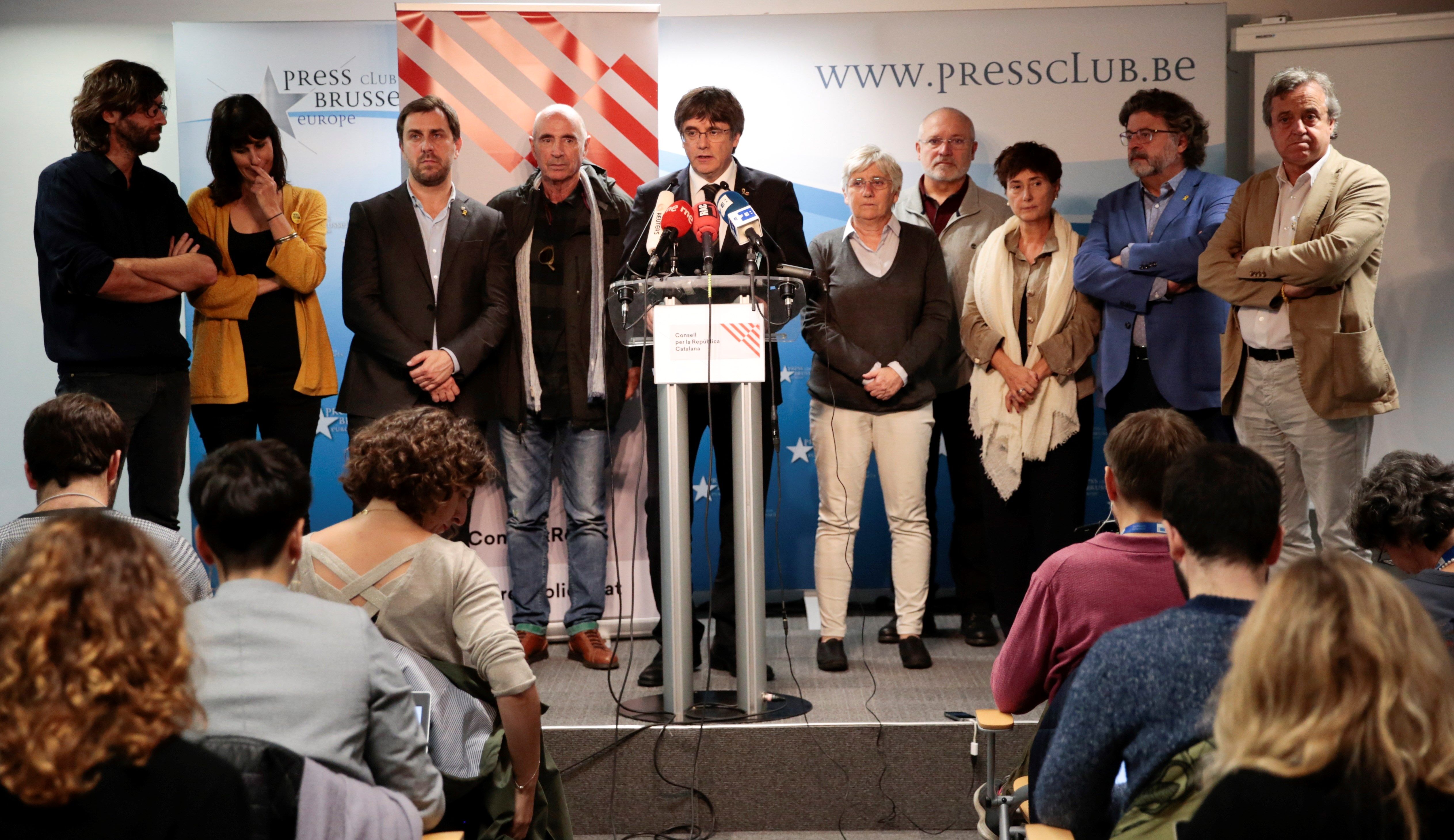After weeks in the eye of the storm between ERC and Junts for the constitution of the new Catalan government, the Belgium-based Catalan exile body, the Council for the Republic, has this Monday published a document in which it vindicates its objective of making an independent Catalan republic possible, while proposing that its own role be reformulated immediately, through talks involving the leaderships of the pro-independence political parties and civil society organizations.
The Council, led by Carles Puigdemont, has spoken out to stress that it has always aimed to be "part of the solution, never part of the problem" and its existence should not only not be an obstacle but "should facilitate the strategic consensus" of the actors which are working to constitute the Catalan republic.
Political leadership
In a statement made this morning, the pro-independence exile body emphasised the need for a "political leadership, with the collegiate participation of the parties and the main civil society groups in the independence movement" and it asserted that "the Council for the Republic is the republican institution at which strategies must be agreed to put into effect" the commitment acquired through the outcome of the 1st October referendum.
It is committed to the insertion of this collegiate political leadership in the institutional framework of the Council, and for that purpose it offers to "reformulate its governance", to precisely define the specific functions of its different bodies, and it expresses its will to "debate this issue with the actors who are called to be part of this collegiate political leadership" and "modify all that is appropriate" in the current Council Regulations.
Bilateral dialogue
Because of all this, it invites the jailed president of the Catalan Republican Left (ERC), Oriol Junqueras, and the party's general secretary in exile, Marta Rovira, the general secretary of Together for Catalonia (Junts), Jordi Sànchez, the senior leaders of the CUP (Popular Unity), as well as the top leaders of civil groups Òmnium Cultural and the Catalan National Assembly (ANC) to a "bilateral dialogue" with the Council, represented by its vice-president, Toni Comín, and two other members of the governing council, to discuss the reformulation of governance "immediately".
The Council recalls that it was created to defend the decision to "constitute an independent republic based on the results of the 1st October referendum" of 2017 and it aims to "promote strategies that make those results fully effective." "It arises from the need to express, through a republican institution, the unitary action to continue the democratic struggle until the Catalan Republic is recognized," it explains.
For this reason, argues the statement, it was formed around members of the government in exile and that government's president, Carles Puigdemont and "this was determined in the pact between JxCat and ERC which began the last legislature." The text asserts the transversality and plurality of the Council, whose permanent body is made up of 12 people: members of the Catalan government in exile, representatives of the three pro-independence parties with a presence in Parliament, two representatives of the ANC and Òmnium and other people representing the pro-independence movement individually.
Not compromised by the state
The text also points out the democratic nature of the Council and adds that, this June, an electoral process will take place to decide the presidency of the Council, which appoints the members of its governing body. The Council for the Republic emphasizes that its political action is facilitated, firstly, by the fact that it is not dependent on the Spanish state - that is, not limited by Spanish laws, and those people in exile are beyond "the scope of repressive action "- and, secondly, by the stability guaranteed by its institutional character.
"The Council, in these two years since its foundation, has been weaving a strategic proposal, which is based on the idea that it is essential to prepare the conditions to complete the independence process through a democratic inundation, in the more than likely scenario that the Spanish state will continue in its refusal to respect and recognize the right to self-determination of Catalonia", the text highlights.
It warns that the existence of the republic cannot be left to depend indefinitely on the will of the Spanish state and that "the accumulation of forces necessary to win the contention" is necessary.
In the main image, Carles Puigdemont at a meeting of the Council for the Republic / ACN

